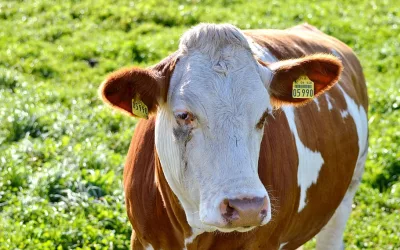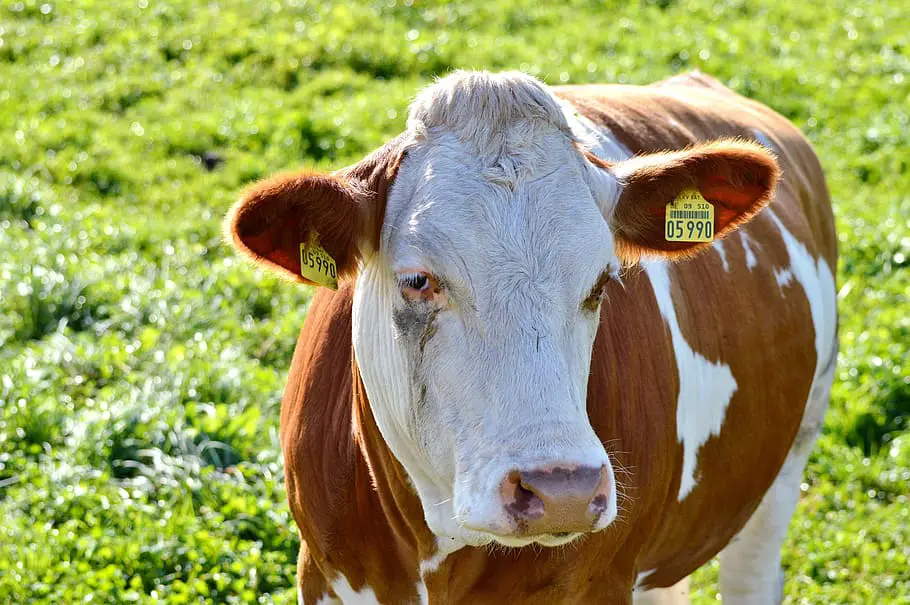How Cryptocurrency is Revolutionizing the Agriculture Industry
The agriculture industry is running under some shifts that can be described as unheard of in the last couple centuries in this vital market, and cryptocurrency is at the forefront of this transformation. Cryptocurrency is revolutionizing the way farmers, suppliers, and consumers interact with each other, creating a more efficient and secure system for all involved.
Cryptocurrency is providing farmers with a secure and reliable way to receive payments for their goods. By using cryptocurrency, farmers can receive payments quickly and securely, without having to worry about the risk of fraud or theft. This is especially beneficial for farmers in developing countries, who often lack access to traditional banking systems.
Cryptocurrency is also making it easier for farmers to purchase supplies and equipment. By using cryptocurrency, farmers can purchase supplies and equipment from suppliers around the world, without having to worry about exchange rates or other financial barriers. This makes it easier for farmers to access the supplies and equipment they need to run their operations.
Finally, cryptocurrency is making it easier for consumers to purchase goods from farmers. By using cryptocurrency, consumers can purchase goods from farmers without having to worry about exchange rates or other financial barriers. This makes it easier for consumers to access the goods they need, while also supporting local farmers.
The revolution that cryptocurrency is bringing to the agriculture industry is undeniable. By providing farmers with a secure and reliable way to receive payments, making it easier for farmers to purchase supplies and equipment, and making it easier for consumers to purchase goods from farmers, cryptocurrency is revolutionizing the way the agriculture industry operates. This revolution is creating a more efficient and secure system for all involved, and is sure to have a lasting impact on the industry for years to come.
Exploring the Benefits of Cryptocurrency for Farmers
Cryptocurrency has the potential to revolutionize the way farmers do business. By providing a secure, digital form of payment, cryptocurrency can help farmers increase their profits, reduce their costs, and protect their assets.
For farmers, cryptocurrency offers a number of advantages. First, it eliminates the need for costly and time-consuming transactions with banks and other financial institutions. By using cryptocurrency, farmers can quickly and securely transfer funds to suppliers, customers, and other stakeholders. This can help farmers save time and money, as well as reduce the risk of fraud.
Second, cryptocurrency can help farmers protect their assets. By using cryptocurrency, farmers can store their funds in a secure digital wallet, which is protected by strong encryption. This can help farmers protect their funds from theft, fraud, and other malicious activities.
Third, cryptocurrency can help farmers increase their profits. By using cryptocurrency, farmers can quickly and securely transfer funds to suppliers, customers, and other stakeholders. This can help farmers reduce their costs and increase their profits.
Finally, cryptocurrency can help farmers access new markets. By using cryptocurrency, farmers can quickly and securely transfer funds to customers in different countries. This can help farmers expand their customer base and increase their profits.
In conclusion, cryptocurrency has the potential to revolutionize the way farmers do business. By providing a secure, digital form of payment, cryptocurrency can help farmers increase their profits, reduce their costs, and protect their assets. Cryptocurrency can also help farmers access new markets and expand their customer base. For these reasons, cryptocurrency is an invaluable tool for farmers looking to maximize their profits and protect their assets.
The Potential of Cryptocurrency to Transform Agricultural Supply Chains
The potential of cryptocurrency to transform agricultural supply chains is an inspiring concept that has the potential to revolutionize the way we think about food production and distribution. Cryptocurrency has the potential to revolutionize the way we think about agricultural supply chains by providing a secure, transparent, and efficient way to transfer value between buyers and sellers.
Cryptocurrency can provide a secure and transparent way to transfer value between buyers and sellers. Transactions are recorded on a public ledger, which can be used to track the flow of funds and ensure that all parties involved in the transaction are held accountable. This can help to reduce fraud and corruption in the agricultural supply chain, as well as provide a more efficient way to transfer value.
Cryptocurrency can also provide a more efficient way to transfer value between buyers and sellers. Transactions can be completed quickly and securely, without the need for third-party intermediaries. This can help to reduce transaction costs and make it easier for buyers and sellers to do business.
Finally, cryptocurrency can provide a more secure way to store and transfer value. Cryptocurrency is stored in a digital wallet, which is protected by strong encryption. This makes it difficult for hackers to access the funds, which can help to reduce the risk of theft and fraud.
The potential of cryptocurrency to transform agricultural supply chains is an inspiring concept that has the potential to revolutionize the way we think about food production and distribution. By providing a secure, transparent, and efficient way to transfer value between buyers and sellers, cryptocurrency can help to reduce fraud and corruption in the agricultural supply chain, as well as provide a more efficient way to transfer value. This can help to make the agricultural supply chain more efficient and secure, which can ultimately lead to a more sustainable and equitable food system.
How Cryptocurrency Can Help Smallholder Farmers
The world of cryptocurrency has opened up a world of possibilities for smallholder farmers. Cryptocurrency can provide smallholder farmers with access to financial services, such as loans, that they may not have had access to before. It can also provide them with a secure and reliable way to store and transfer money, as well as a way to access global markets.
Cryptocurrency can help smallholder farmers in a number of ways. First, it can provide them with access to financial services that they may not have had access to before. This could include access to loans, which can help them purchase the necessary equipment and supplies to increase their yields. It can also provide them with a secure and reliable way to store and transfer money, which can help them manage their finances more effectively.
Second, cryptocurrency can provide smallholder farmers with access to global markets. This can help them increase their profits by selling their produce to a larger market. It can also help them diversify their income sources, as they can access markets in different countries and regions. This can help them reduce their risk and increase their profits.
Finally, cryptocurrency can provide smallholder farmers with a way to protect their assets. Cryptocurrency can be used to store and transfer money securely, which can help them protect their assets from theft or fraud. This can help them ensure that their hard-earned money is safe and secure.
Cryptocurrency can be a powerful tool for smallholder farmers. It can provide them with access to financial services, a secure way to store and transfer money, and access to global markets. It can also help them protect their assets from theft or fraud. Cryptocurrency can be a powerful tool for smallholder farmers, and it can help them increase their profits and reduce their risk.
The Impact of Cryptocurrency on Agricultural Financing
The agricultural sector is a vital part of the global economy, providing food, fiber, and other essential products to people around the world. Unfortunately, the sector has long been underserved by traditional financial institutions, leaving many farmers and agricultural businesses without access to the capital they need to grow and thrive. Fortunately, the emergence of cryptocurrency has the potential to revolutionize agricultural financing, providing farmers and agricultural businesses with access to the capital they need to succeed.
Cryptocurrency has the potential to revolutionize agricultural financing in a number of ways. First, it can provide farmers and agricultural businesses with access to capital that is not available through traditional financial institutions. Cryptocurrency can be used to facilitate peer-to-peer lending, allowing farmers and agricultural businesses to access capital from individuals and organizations around the world. This can provide farmers and agricultural businesses with access to capital that is not available through traditional financial institutions.
Second, cryptocurrency can provide farmers and agricultural businesses with access to capital that is not subject to the same regulations and restrictions as traditional financial institutions. This can make it easier for farmers and agricultural businesses to access capital, as they will not have to worry about meeting the same stringent requirements as traditional financial institutions.
Finally, cryptocurrency can provide farmers and agricultural businesses with access to capital that is not subject to the same currency fluctuations as traditional financial institutions. This can provide farmers and agricultural businesses with a more stable source of capital, as they will not have to worry about their capital being devalued due to currency fluctuations.
The potential of cryptocurrency to revolutionize agricultural financing is immense. It can provide farmers and agricultural businesses with access to capital that is not available through traditional financial institutions, is not subject to the same regulations and restrictions, and is not subject to the same currency fluctuations. This can provide farmers and agricultural businesses with the capital they need to succeed, allowing them to grow and thrive in an increasingly competitive global economy. Cryptocurrency has the potential to be a game-changer for the agricultural sector, and it is up to us to ensure that it is used to its fullest potential.
The Role of Cryptocurrency in Agricultural Trade
The world of agriculture is changing rapidly, and cryptocurrency is playing an increasingly important role in the global agricultural trade. Cryptocurrency is revolutionizing the way farmers, traders, and consumers interact with each other, and it is providing a secure, efficient, and cost-effective way to facilitate agricultural trade.
Cryptocurrency is a digital asset that can be used to purchase goods and services, and it is becoming increasingly popular in the agricultural sector. Cryptocurrency transactions are secure, fast, and cost-effective, and they can be used to facilitate international trade. By using cryptocurrency, farmers, traders, and consumers can quickly and securely transfer funds across borders, eliminating the need for costly and time-consuming international banking transactions.
Cryptocurrency also provides a secure and transparent way to track and verify transactions. This is especially important in the agricultural sector, where buyers and sellers must be able to trust each other. By using cryptocurrency, buyers and sellers can easily verify the authenticity of their transactions, ensuring that all parties involved are protected.
Cryptocurrency is also providing a new way for farmers to access capital. By using cryptocurrency, farmers can access capital from investors around the world, allowing them to expand their operations and increase their profits. This is especially important in developing countries, where access to capital is often limited.
The potential of cryptocurrency in the agricultural sector is immense, and it is only beginning to be realized. Cryptocurrency is providing a secure, efficient, and cost-effective way to facilitate agricultural trade, and it is providing farmers with access to capital that was previously unavailable. Cryptocurrency is revolutionizing the way farmers, traders, and consumers interact with each other, and it is providing a secure, efficient, and cost-effective way to facilitate agricultural trade. As the world of agriculture continues to evolve, cryptocurrency will continue to play an increasingly important role in the global agricultural trade.
How Cryptocurrency Can Help Reduce Food Waste
Food waste is a major global issue, with an estimated one-third of all food produced for human consumption being lost or wasted each year. This is a huge problem, not only because of the environmental impact of wasted food, but also because of the economic and social implications of food insecurity. Fortunately, cryptocurrency can help to reduce food waste and make the world a better place.
Cryptocurrency can be used to facilitate the donation of food to those in need. By using cryptocurrency, donors can easily and securely transfer funds to organizations that provide food to those in need. This can help to ensure that food is not wasted, but instead goes to those who need it most. Additionally, cryptocurrency can be used to facilitate the purchase of food from local farmers and producers, helping to ensure that food is not wasted due to overproduction.
Cryptocurrency can also be used to incentivize people to reduce their food waste. For example, businesses and individuals could be rewarded with cryptocurrency for reducing their food waste. This could be done by rewarding people for donating their excess food to those in need, or for composting their food waste instead of throwing it away. This could help to reduce the amount of food that is wasted each year, while also providing an incentive for people to be more mindful of their food consumption.
Finally, cryptocurrency can be used to fund research and development into new technologies that can help to reduce food waste. For example, blockchain technology could be used to track food from farm to table, helping to ensure that food is not wasted due to spoilage or mismanagement. Additionally, cryptocurrency could be used to fund research into new methods of food production, such as vertical farming, which could help to reduce the amount of land and water needed to produce food.
In conclusion, cryptocurrency can be a powerful tool in the fight against food waste. By facilitating the donation of food to those in need, incentivizing people to reduce their food waste, and funding research into new technologies, cryptocurrency can help to make the world a better place.
The Potential of Cryptocurrency to Enhance Food Security
The potential of cryptocurrency to enhance food security is an inspiring concept that has the potential to revolutionize the way we think about food security. Cryptocurrency has the potential to provide a secure, transparent, and efficient way to transfer funds and resources to those in need. This could be a game-changer for those living in poverty and food insecurity, as it could provide a way to access resources and funds quickly and securely.
Cryptocurrency could be used to provide direct aid to those in need, allowing them to purchase food and other necessities without having to wait for traditional aid to arrive. This could be especially beneficial in areas where traditional aid is slow or unreliable. Additionally, cryptocurrency could be used to provide microloans to those in need, allowing them to start small businesses and increase their income. This could be a powerful tool for those living in poverty, as it could provide them with the resources they need to become self-sufficient.
Cryptocurrency could also be used to provide a secure and transparent way to transfer funds and resources to those in need. This could be especially beneficial in areas where corruption is rampant, as it would provide a way to ensure that funds are being used for their intended purpose. Additionally, cryptocurrency could be used to provide a secure and transparent way to track donations and aid, allowing donors to ensure that their funds are being used effectively.
The potential of cryptocurrency to enhance food security is an inspiring concept that has the potential to revolutionize the way we think about food security. Cryptocurrency could provide a secure, transparent, and efficient way to transfer funds and resources to those in need, allowing them to purchase food and other necessities without having to wait for traditional aid to arrive. It could also provide a secure and transparent way to track donations and aid, allowing donors to ensure that their funds are being used effectively. Cryptocurrency could be a powerful tool for those living in poverty, as it could provide them with the resources they need to become self-sufficient. With the right implementation, cryptocurrency could be a game-changer for those living in poverty and food insecurity.
Exploring the Use of Cryptocurrency in Agricultural Insurance
The world of agriculture is changing rapidly, and the use of cryptocurrency in agricultural insurance is an exciting new development that could revolutionize the industry. Cryptocurrency has the potential to provide farmers with a secure, reliable, and cost-effective way to insure their crops and livestock.
Cryptocurrency is a digital asset that uses cryptography to secure transactions and control the creation of new units. It is decentralized, meaning it is not controlled by any government or central bank. This makes it an attractive option for farmers, as it eliminates the need for costly intermediaries and allows them to manage their own insurance policies.
Cryptocurrency can be used to create smart contracts, which are self-executing contracts that are stored on a blockchain. These contracts can be used to automate the payment of insurance premiums and claims, making the process more efficient and secure. Smart contracts can also be used to create a decentralized insurance marketplace, where farmers can compare different policies and find the best coverage for their needs.
The use of cryptocurrency in agricultural insurance could also help to reduce fraud and corruption. By using a blockchain-based system, all transactions are recorded and can be easily tracked. This makes it difficult for fraudsters to manipulate the system and makes it easier for insurers to detect and prevent fraudulent claims.
Finally, cryptocurrency could help to reduce the cost of agricultural insurance. By eliminating the need for intermediaries, farmers can save money on premiums and claims. This could make insurance more affordable and accessible to farmers in developing countries, who often struggle to access traditional insurance policies.
The use of cryptocurrency in agricultural insurance is an exciting development that could revolutionize the industry. It has the potential to provide farmers with a secure, reliable, and cost-effective way to insure their crops and livestock. By reducing fraud and corruption, making insurance more affordable, and eliminating the need for intermediaries, cryptocurrency could help to create a more equitable and sustainable agricultural insurance system. It is an inspiring development that could have a positive impact on the lives of farmers around the world.






















